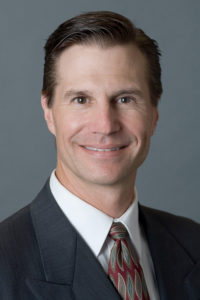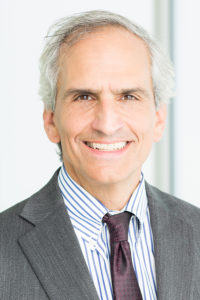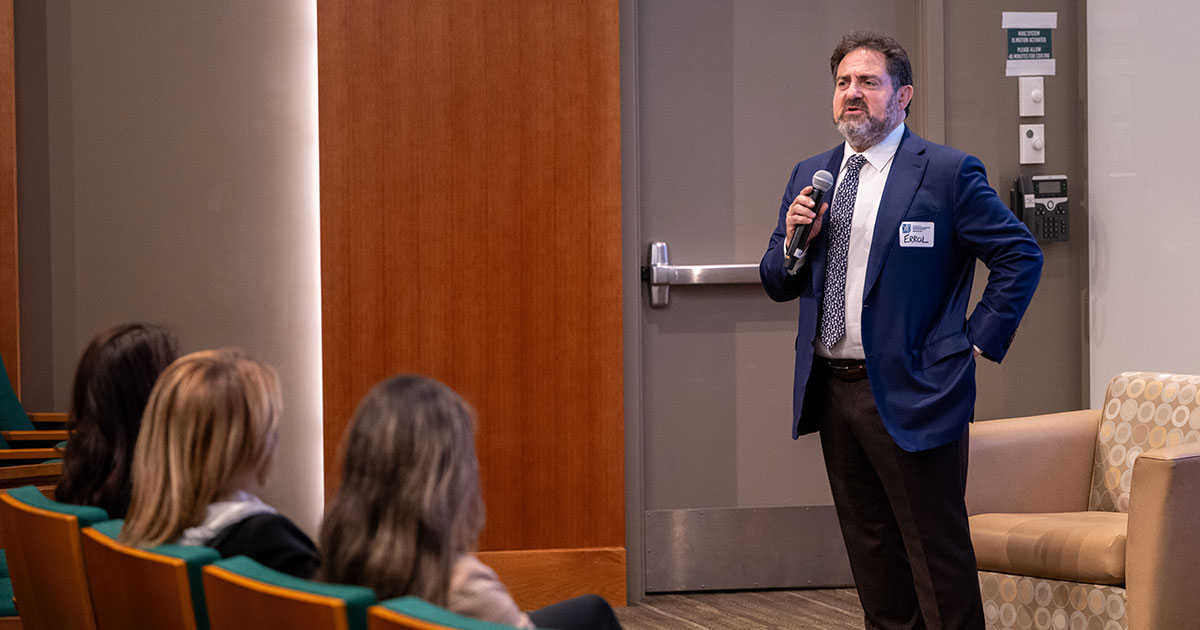Babson Experts on How to Recession-Proof Your Finances

A combination of surging inflation, rising interest rates, choppy markets, and shaky economic activity over the last several months has prompted warnings from a growing swell of economists and bankers who suggest that a recession is likely to hit the United States at any moment.

Ryan Davies, professor of finance and chair of the Finance Division
Ryan Davies, professor of finance and chair of the Finance Division at Babson College, is one of many highly qualified financial and investment professors at Babson who discussed what the average investor can do now to protect their wealth in the event of a recession.
“Conventional wisdom states that one should invest in companies that have strong, stable cash flow and have pricing power; things like utilities, consumer staples, and healthcare stocks,” Davies said.
The bare-bones definition of a recession is two consecutive quarters of declining economic output, meaning the gross domestic product in the United States. The country’s first-quarter growth was down 1.6 percent, according to the National Bureau of Economic Research. Results of the second quarter will be announced in late August, and several indications make a recession look likely. The stock market had its worst six months of a year since 1970, and the higher prices led to less spending in May, according to the U.S. Department of Commerce.
So, what can investors do if a recession does hit?
“In the short term, there will not be many places to hide from falling markets and inflation” during a recession, Davies said. “At the moment, you can buy virtually risk-free I-bonds from the Treasury that pay 9.62% for the next six months. That’s hard to beat.”
Upsides in a Down Market

Richard Bliss, professor of finance
Entrepreneurs looking to grow or even start a new business might not have to put their plans on hold, according to Richard Bliss, a professor of finance at Babson who also is the national academic director of the Goldman Sachs 10,000 Small Businesses program.
“If you are trying to start a business, decades of data show the ventures launched in economic downturns do as well as those that get started in better conditions,” Bliss said. “Assets and talent can be easier to secure and less expensive, so if you have an idea, don’t hesitate.”
Jerome Taillard, an associate professor of finance at Babson, pointed to some other upsides.

Michael Goldstein, the Donald P. Babson Chair in Applied Investments
“Innovation, growth, new products and services occur throughout the cycle. There are always new opportunities, even in the darkest days,” said Taillard, also the Professor George Troughton Term Chair in Finance. “They are harder to see and get, but that does not mean they are not there.”
Michael Goldstein, the faculty director of Babson’s Master of Science in Finance program, warned new entrepreneurs to make sure they are on pretty solid financial footing before launching into a new venture.
“If you have to make rent payments, find a steady job and ride out the storm,” Goldstein said.
A Bear Market Balance

Glenn Migliozzi, lecturer of finance
So many experts urge those in the stock market not to panic and sell. Babson Lecturer Glenn Migliozzi, who has more than 30 years of experience in the financial services industry, got a little more specific.
“I’d treat my portfolio the same as I would in a bull market. I always seek to rebalance my portfolio to make sure my long-term investment goals/risks are intact,” Migliozzi said. “It’s an opportunity to consider and evaluate rebalancing your portfolio weightings with increased investments in the worst-performing sectors with proceeds from the top-performing sectors.”
Babson’s finance professors also advised workers to continue investing in their retirement accounts with every paycheck. The roiling market might even create opportunities for some investors, Davies said.

Jerome Taillard, the Professor George Troughton Term Chair in Finance
“With some patience, once the market stabilizes, I think it will be easier to be an investor than it was 12 months ago,” Davies said. “Last year, it was very difficult to invest since many valuations seemed to make no sense and everything seemed to move together. Valuations are beginning to adjust, which will separate winners from losers over time. Volatile markets may provide opportunities to invest in these winners at good prices.”
Goldstein, also the Donald P. Babson Chair in Applied Investments, said investors should avoid buying too early, while Taillard warned that there’s an emotional toll during a bear market.
“Opportunities are plentiful in a bear market as valuations go down and make for more attractive entry points,” Taillard said. “However, the classic mistake is to take the plunge too soon. As they say, ‘It is dangerous to try to catch a falling knife!’ ”
Photo: Scott Beale / Laughing Squid
Posted in Insights




